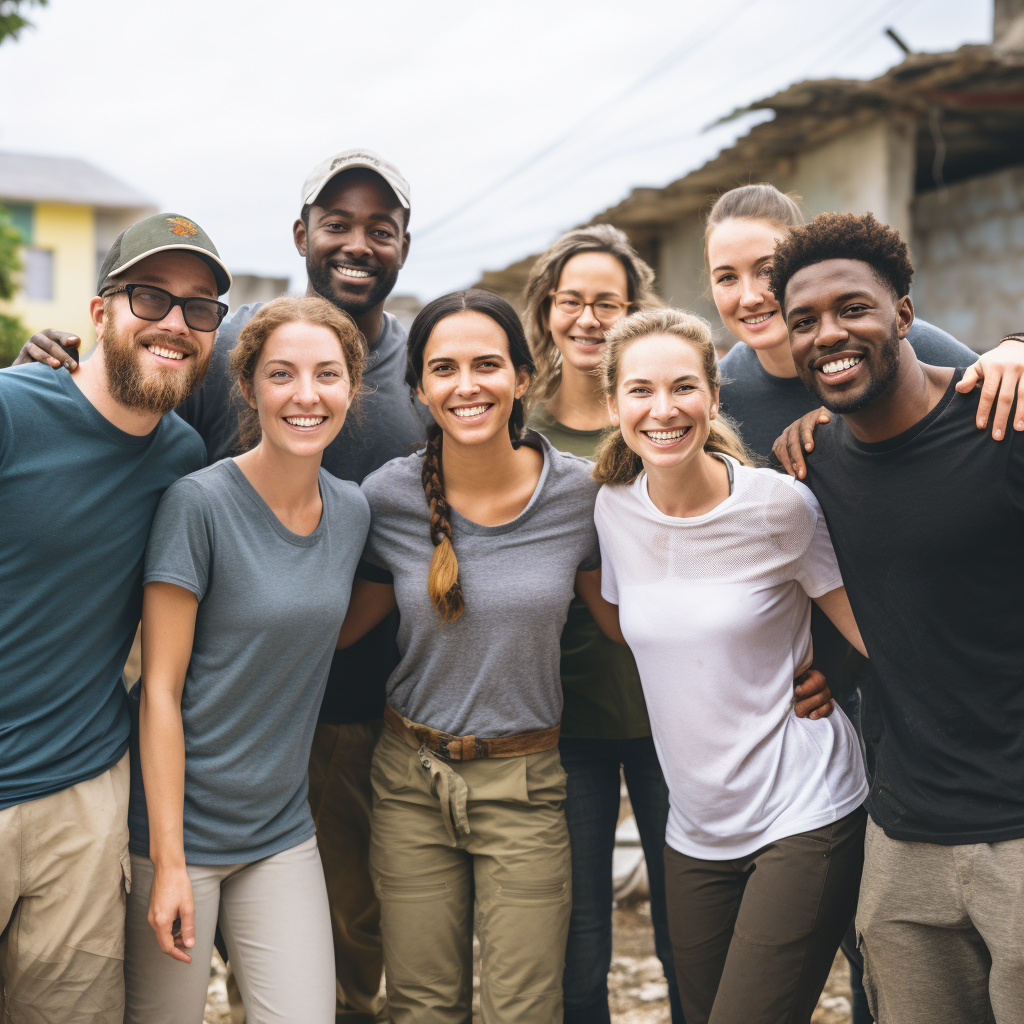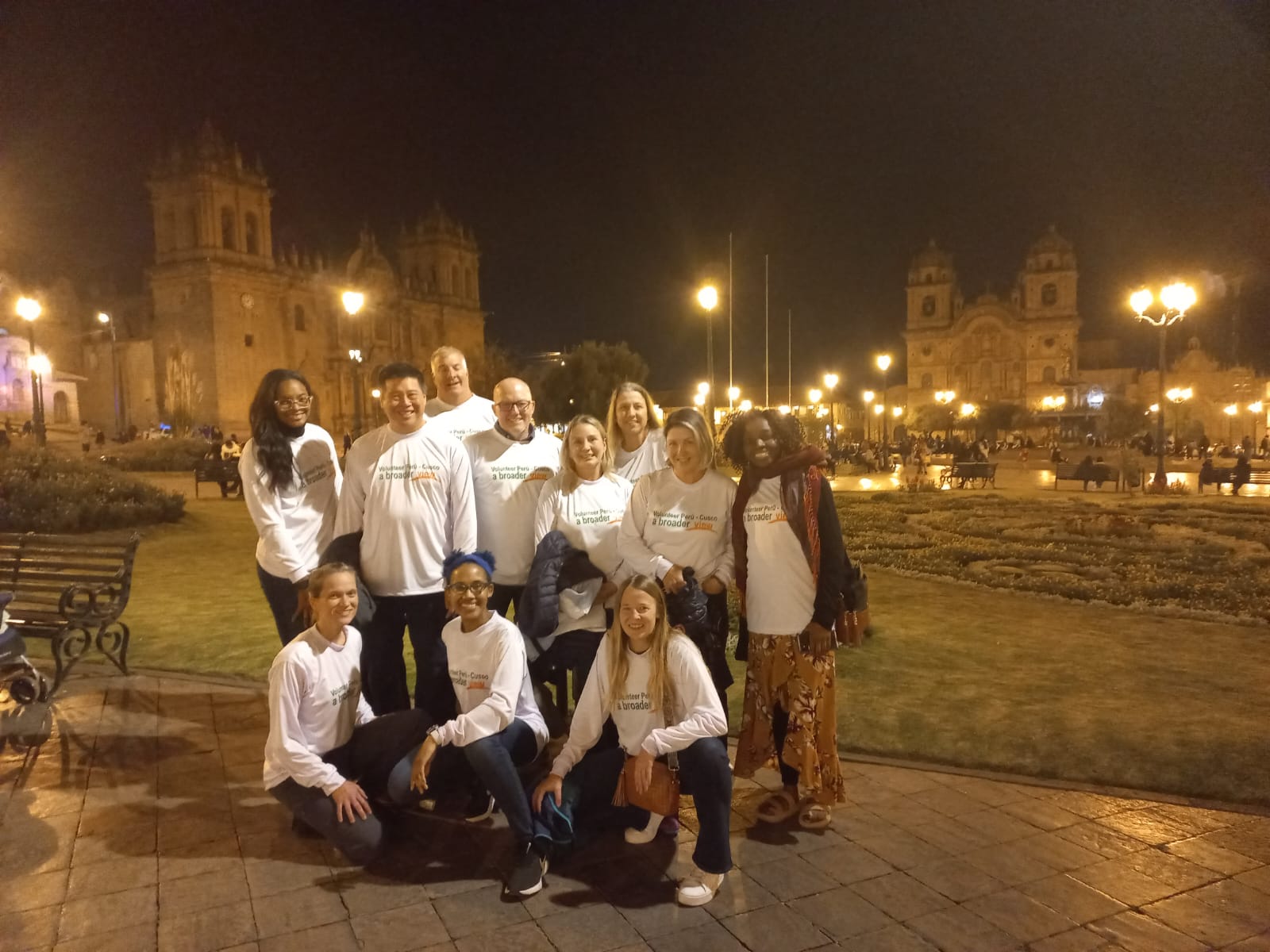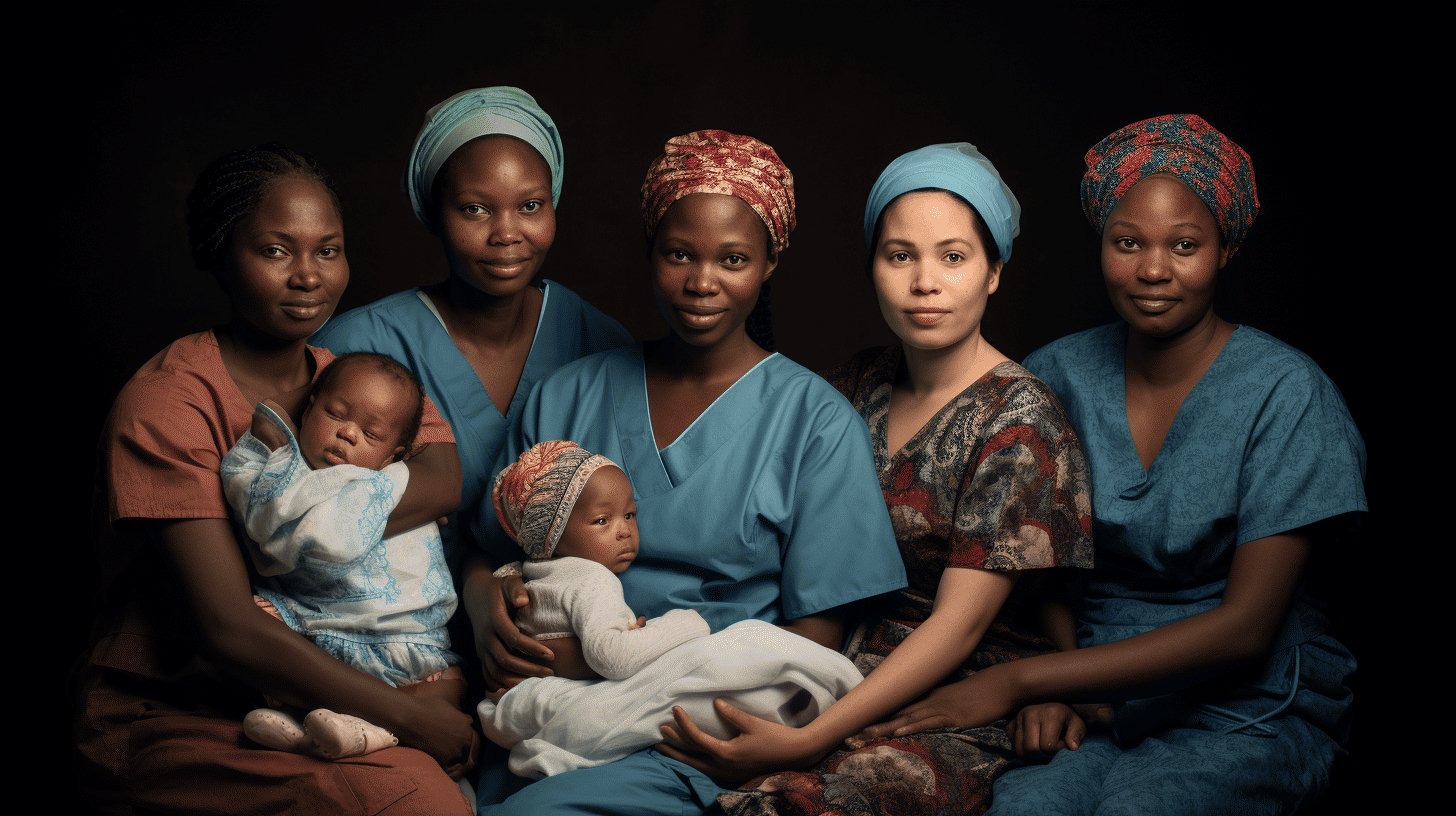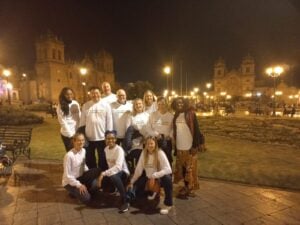Hey there! Have you ever thought about how cultural exchange can enhance your personal growth? Exploring different cultures, meeting new people, and experiencing unique traditions can have a profound impact on your own development. In this article, we’ll dive into the world of cultural exchange and discover the amazing benefits it can bring to your life.
Cultural exchange is not just about visiting new places or trying new foods; it’s about immersing yourself in a different way of life and gaining a deeper understanding of different perspectives. By engaging in cultural exchange, you have the opportunity to broaden your horizons, challenge your assumptions, and connect with people from all walks of life.
In this article, we’ll explore the different aspects of cultural exchange, discuss its importance, and highlight some of the incredible benefits it can bring. We’ll also delve into ways you can actively engage in cultural exchange, as well as address some of the common challenges and solutions. By the end of this article, you’ll have a better appreciation for the power of cultural exchange and how it can contribute to your personal growth. So, let’s get started on this exciting journey of exploration and self-discovery!

Understanding Cultural Exchange
Cultural exchange is a concept that refers to the mutual sharing and learning of cultural ideas, values, customs, and traditions between individuals or groups from different backgrounds. It involves actively engaging with people from diverse cultures, creating opportunities for dialogue, and promoting intercultural understanding. Cultural exchange can take various forms, such as travel, hosting international students, or participating in cross-cultural events and activities.
Defining Cultural Exchange
Cultural exchange is more than just visiting a foreign country or trying different cuisines. It is about immersing oneself in a different culture, embracing its uniqueness, and gaining a deeper understanding of the world. Here are a few key aspects of cultural exchange:
- Interaction: Cultural exchange involves meaningful interactions and connections with individuals from different cultural backgrounds. It allows for a deeper understanding of their perspectives, beliefs, and values.
- Knowledge and Learning: Through cultural exchange, individuals have the opportunity to learn about the history, traditions, art, music, and literature of other cultures. This knowledge broadens our horizons and expands our awareness of the world.
- Sharing and Mutual Respect: Cultural exchange is a two-way street. It involves sharing our own culture while respecting and appreciating the culture of others. It fosters a spirit of openness and dialogue, promoting mutual respect among cultures.
Importance of Cultural Awareness
Cultural exchange is a powerful tool for promoting cultural awareness and understanding. It plays a crucial role in breaking down stereotypes, challenging biases, and fostering empathy. Here are a few reasons why cultural awareness is important:
- Global Citizenship: In today’s interconnected world, being culturally aware is essential to being a responsible global citizen. It helps us develop a sense of empathy and respect for people from different backgrounds.
- Building Bridges: Cultural exchange builds bridges between communities and promotes dialogue. It creates opportunities for people to come together, share their experiences, and find common ground.
- Tolerance and Acceptance: Cultural exchange promotes tolerance and acceptance by exposing us to different perspectives and ways of life. It helps us challenge our own assumptions and prejudices.
- Personal Growth: Engaging in cultural exchange allows for personal growth and self-discovery. It helps us develop adaptability, flexibility, and a broader perspective on life.
Cultural exchange goes beyond the superficial aspects of a culture. It encourages meaningful connections and understanding between individuals from different backgrounds. By embracing cultural exchange, we can enhance our personal growth, broaden our mindset, and contribute to a more inclusive and harmonious world.
Benefits of Cultural Exchange
Cultural exchange offers a multitude of benefits that can enhance personal growth and broaden our horizons. By engaging in cultural exchange, we open ourselves up to new experiences, perspectives, and ways of life. Here are some of the key benefits that come with participating in cultural exchange:
1. Developing Empathy and Understanding
Cultural exchange allows us to step outside of our own cultural bubble and immerse ourselves in the lives of others. This exposure to different customs, values, and beliefs helps us develop empathy and understanding towards people from diverse backgrounds. We gain a deeper appreciation for the similarities and differences that exist between us and foster a sense of compassion and respect for others.
2. Expanding Global Perspective
Engaging in cultural exchange provides us with a broader understanding of the world. By interacting with people from different countries and cultures, we gain new insights and perspectives that challenge our preconceived notions. This expanded global perspective not only enhances our knowledge but also fosters a sense of interconnectedness and global citizenship.
3. Learning New Languages and Communication Skills
One of the most practical benefits of cultural exchange is the opportunity to learn new languages and improve our communication skills. When we immerse ourselves in a foreign culture, we are often pushed out of our comfort zone and forced to communicate in new ways. This can lead to significant growth in our language abilities, as well as the development of important interpersonal skills such as listening, empathy, and effective communication.
Cultural exchange is not just about experiencing new things; it’s about personal growth, understanding others, and expanding our worldview. As Mark Twain once said, “Travel is fatal to prejudice, bigotry, and narrow-mindedness.” By embracing cultural exchange, we give ourselves the opportunity to become more open-minded, accepting, and culturally aware individuals.
Ways to Engage in Cultural Exchange
Cultural exchange is not limited to just travel and immersion programs. There are multiple ways to engage in cultural exchange both within your own community and on a global scale. Here are some ways you can participate in cultural exchange:
- Traveling and Immersion Programs
- Traveling to different countries and immersing yourself in their culture is one of the most direct and impactful ways to engage in cultural exchange. By living and interacting with locals, you can gain a deeper understanding of their traditions, values, and way of life.
- Joining immersion programs where you can live with host families or participate in volunteer projects allows you to experience the culture firsthand and build meaningful connections with people from different backgrounds.
- Hosting International Students
- You don’t have to travel far to engage in cultural exchange. By hosting international students in your own home, you can provide them with an opportunity to experience your culture while also learning about theirs. This can be a mutually beneficial experience, fostering cross-cultural understanding and lifelong friendships.
- Hosting international students can also broaden your perspective and challenge your assumptions, as you will be exposed to different customs, languages, and viewpoints within the comfort of your own home.
- Participating in Cross-cultural Events
- Many communities organize cross-cultural events and festivals that celebrate diversity and promote cultural exchange. These events often showcase traditional music, dance, food, and art from different cultures, providing an opportunity to learn and appreciate different customs and traditions.
- Participating in these events not only allows you to experience different cultures in a fun and interactive way but also helps create an inclusive and diverse community where people from all backgrounds feel welcomed and valued.
By engaging in these various ways of cultural exchange, you can broaden your horizons, develop a deeper appreciation for different cultures, and foster connections that transcend borders. It’s a chance to step out of your comfort zone, challenge your preconceptions, and open your mind to new and exciting experiences. Remember, cultural exchange is not just a one-time event but a continuous process that can have a lasting impact on your personal growth and global perspective.
“The world is a book and those who do not travel read only one page.” – St. Augustine
Challenges and Solutions
Engaging in cultural exchange can be a rewarding and enriching experience, but it is not without its challenges. Here are some common challenges individuals may face when participating in cultural exchange, as well as possible solutions to overcome them:
Language Barriers and Communication
Challenge: One of the most common challenges in cultural exchange is the language barrier. When two individuals do not share a common language, it can be difficult to communicate effectively, leading to misunderstandings and frustration.
Solution: There are several strategies that can help overcome language barriers in cultural exchange:
- Language Learning: Taking the initiative to learn the language of the host country or the language spoken by the individual you are interacting with can greatly enhance communication and understanding.
- Translation Tools: Utilizing translation tools, such as smartphone apps or online resources, can assist in bridging the language gap.
- Non-Verbal Communication: Non-verbal cues, such as body language and facial expressions, can also help convey meaning when verbal communication is limited.
Cultural Misunderstandings and Sensitivities
Challenge: Cultural exchange exposes individuals to different cultural norms, values, and traditions. This can sometimes lead to misunderstandings or unintentionally offending others due to differences in customs and behaviors.
Solution: To navigate cultural misunderstandings and sensitivities:
- Cultural Awareness: Educate yourself about the cultural practices and customs of the country or community you are engaging with. This will help you avoid unintentional misunderstandings or offensive behavior.
- Ask Questions: When in doubt, ask questions respectfully to understand the customs and traditions of the culture you are interacting with.
- Be Open-Minded: Approach cultural differences with an open mind, recognizing that what may be considered acceptable in one culture may not be the same in another.
Adjusting to Different Cultural Norms
Challenge: Another challenge in cultural exchange is adjusting to different cultural norms and expectations. This can include everything from greetings and personal space to social etiquette and food customs.
Solution: To adapt to different cultural norms:
- Observe and Learn: Pay attention to how locals in the host culture behave and adapt your behavior accordingly. Observe their actions and follow their lead when unsure.
- Ask for Guidance: Seek guidance from local hosts, friends, or mentors who can provide insights into the cultural norms and expectations.
- Embrace Flexibility: Be flexible and open to new experiences and ways of doing things. Accept that cultural differences exist and approach them with a willingness to learn and adapt.
By being aware of these challenges and employing solutions to address them, individuals can navigate cultural exchange more smoothly and make the most out of their experiences. Remember, cultural exchange is a two-way street, and both parties involved can learn and grow from the interaction.
Promoting Intercultural Dialogue
In an increasingly interconnected world, promoting intercultural dialogue is essential for fostering understanding, empathy, and acceptance among diverse communities. By engaging in meaningful conversations, individuals can bridge cultural gaps, break down stereotypes, and encourage mutual respect. Promoting intercultural dialogue not only benefits society as a whole but also allows for personal growth and development.
Facilitating Interactions and Dialogue
One of the key ways to promote intercultural dialogue is by actively facilitating interactions and dialogue between different cultural groups. This can be done through various means, such as:
- Organizing community events that encourage individuals from different cultures to come together and engage in conversations. These events can range from cultural festivals and exhibitions to panel discussions and workshops.
- Creating online platforms or forums where people can connect with others from different cultural backgrounds and share their experiences and perspectives. This can be done through social media groups, online forums, or even virtual meetups.
- Encouraging face-to-face interactions through initiatives like language exchange programs or cultural immersion experiences. These activities allow individuals to learn from one another while cultivating meaningful relationships.
Promoting Tolerance and Acceptance
Promoting tolerance and acceptance is another crucial aspect of fostering intercultural dialogue. By encouraging individuals to have an open mind and accept different cultural practices and beliefs, we can build a more inclusive and harmonious society. Here are some ways to promote tolerance and acceptance:
- Educating individuals about cultural diversity and the importance of respecting differences. This can be done through awareness campaigns, workshops, and educational programs.
- Encouraging empathy and understanding by sharing personal stories and experiences. When people have the opportunity to hear personal narratives from individuals of different cultures, it humanizes the experience and helps break down stereotypes.
- Empowering individuals to challenge their own biases and prejudices. This can be achieved through self-reflection and seeking out opportunities to interact with individuals from different cultural backgrounds.
Educational Initiatives
Education plays a pivotal role in promoting intercultural dialogue. By incorporating intercultural education into school curricula, we can equip the younger generation with the tools and knowledge needed to foster a more inclusive society. Here are some educational initiatives that can promote intercultural dialogue:
- Incorporating multicultural themes and perspectives into various subjects, including history, literature, and social studies. This exposes students to different cultures and encourages them to critically analyze societal norms.
- Facilitating exchange programs between schools in different countries. These programs provide students with firsthand experiences of different cultures, enabling them to develop a more nuanced understanding.
- Encouraging research and academic studies focused on intercultural dialogue and understanding. This can involve supporting scholarships and funding research projects that aim to explore the complexities of intercultural interactions.
Promoting intercultural dialogue is not only essential for creating a more harmonious and inclusive society, but it also offers numerous benefits on an individual level. By engaging in intercultural dialogue, individuals can experience personal growth and development in the following ways:
Enhancing Self-awareness and Identity
Engaging in intercultural dialogue allows individuals to reflect on their own cultural values and beliefs. By understanding how their own culture shapes their perspective, individuals can develop a deeper sense of self-awareness and identity.
Developing Flexibility and Adaptability
Intercultural dialogue challenges individuals to step out of their comfort zones and adapt to different cultural contexts. This fosters flexibility and adaptability, skills that are valuable in an increasingly globalized world.
Creating Lifelong Connections
By engaging in dialogue with individuals from different cultures, one can form meaningful and lasting connections. These connections can provide a support system and open doors to new opportunities both personally and professionally.
In conclusion, promoting intercultural dialogue is crucial for creating a more harmonious and inclusive society. By facilitating interactions, promoting tolerance and acceptance, and implementing educational initiatives, we can foster a deeper understanding of different cultures and foster personal growth. So, let’s embrace the opportunity to engage in intercultural dialogue and build a more interconnected world.
Personal Growth and Cultural Exchange
Cultural exchange is not only a valuable way to learn about different countries and traditions, but it also offers numerous benefits for personal growth. Engaging in cultural exchange can help individuals develop a greater sense of self-awareness, flexibility, and adaptability. Additionally, it opens doors to creating lifelong connections and expanding one’s horizons. In this section, we will explore how personal growth can be enhanced through cultural exchange.
Enhancing Self-awareness and Identity
Cultural exchange gives individuals the opportunity to reevaluate their own beliefs, values, and identity. When exposed to different cultures and perspectives, we are often pushed to reflect upon our own backgrounds and question preconceived notions. As a result, we become more self-aware and develop a deeper understanding of who we are as individuals.
“The more I learned about different cultures, the more I started questioning my own beliefs and values. It was a transformative experience that helped me gain a better understanding of myself.” – John, a cultural exchange participant
Developing Flexibility and Adaptability
One of the greatest challenges of cultural exchange is adapting to unfamiliar environments and customs. Whether it’s navigating through a foreign city or adjusting to different social norms, cultural exchange forces us to be flexible and adaptable. This ability to adapt to new situations not only enhances our problem-solving skills but also builds resilience and the confidence to thrive in diverse environments.
Creating Lifelong Connections
Engaging in cultural exchange opens doors to building lifelong connections with people from around the world. When we interact with individuals from different cultures, we are exposed to unique perspectives and experiences that challenge our own worldview. These connections often lead to the formation of deep bonds, fostering a sense of global community and lifelong friendships.
“Through cultural exchange, I have made friends from different corners of the world. These friendships have enriched my life and expanded my global network.” – Sarah, a frequent traveler and cultural exchange enthusiast
Cultural exchange is an incredible opportunity for personal growth. It allows us to develop a greater sense of self-awareness, flexibility, and adaptability. Moreover, it enables us to form lifelong connections with people from diverse backgrounds. So, whether you are planning to participate in an exchange program, host an international student, or attend cross-cultural events, embracing cultural exchange will undoubtedly be a transformative journey towards personal growth.
Conclusion
In conclusion, cultural exchange is a powerful tool for personal growth. By immersing ourselves in different cultures, we can broaden our perspectives, develop empathy, and gain valuable communication skills. Cultural exchange allows us to challenge our own beliefs and values, while also learning from others. It promotes intercultural dialogue and helps foster tolerance and acceptance in a world that is increasingly interconnected.
At A Broader View Volunteers, we believe in the power of cultural exchange to create meaningful and life-changing experiences for volunteers and local communities. Our organization is dedicated to providing opportunities for individuals to engage in cultural exchange through volunteer work in over 32 countries across Africa, Asia, Central America, and South America.
Through our programs, volunteers not only contribute to community development and sustainable projects but also have the chance to immerse themselves in the local culture, learn new languages, and build lifelong connections. We strive to promote intercultural dialogue and understanding, fostering personal growth and creating a more interconnected and compassionate world.
To learn more about our volunteer programs and how you can participate in cultural exchange, visit our website at www.abroaderview.org. Immerse yourself in a new culture, make a difference, and embark on a transformative journey of personal growth with A Broader View Volunteers.
Frequently Asked Questions
- What is cultural exchange?
Cultural exchange refers to the mutual sharing and learning of cultural beliefs, values, customs, traditions, and perspectives between people from different backgrounds or countries.
- How can cultural exchange enhance personal growth?
Cultural exchange enhances personal growth by promoting open-mindedness, empathy, and tolerance towards different cultures. It helps broaden one’s perspective, develop intercultural communication skills, and fosters a sense of appreciation for diversity.
- What are some benefits of participating in cultural exchange programs?
Some benefits of participating in cultural exchange programs include gaining a global perspective, developing cross-cultural communication skills, building lifelong friendships, acquiring new language skills, and experiencing personal growth through stepping out of one’s comfort zone.
- How can I engage in cultural exchange if I can’t travel?
If you can’t travel, you can still engage in cultural exchange by connecting with people from different cultures online through social media platforms, joining cultural clubs or organizations, attending cultural events, or even hosting international students or travelers.
- What are some tips for making the most out of a cultural exchange experience?
Some tips for making the most out of a cultural exchange experience include being open-minded, respectful, and curious; actively engaging with the local community; trying new foods, activities, and customs; and maintaining a positive attitude towards different cultural practices.
-
Safe Solo Volunteering Abroad | Empowerment FemalesThrough Service with ABV

Embrace the adventure of a lifetime with ABV’s supported solo volunteering programs. Create lasting friendships, make a real difference, and explore the world safely under a supportive umbrella. Recommend Peru, Ecuador, Colombia, and more. Table of Contents Introduction to ABV and Solo Volunteering Traveling solo can be a thrilling yet daunting endeavor. A Broad View…
-
Empowerment Through Sustainable programs: Volunteer Opportunities in Peru Cusco

Discover empowering volunteer opportunities in Peru Cusco with www.abroaderview.org. Support sustainable programs and make a positive impact while gaining valuable experiences.
-
Midwives & Obstetricians: Empower Mothers & Babies Abroad

Discover how midwives and obstetricians from abroad can empower mothers and babies through the programs offered by www.abroaderview.org. Make a difference today.



